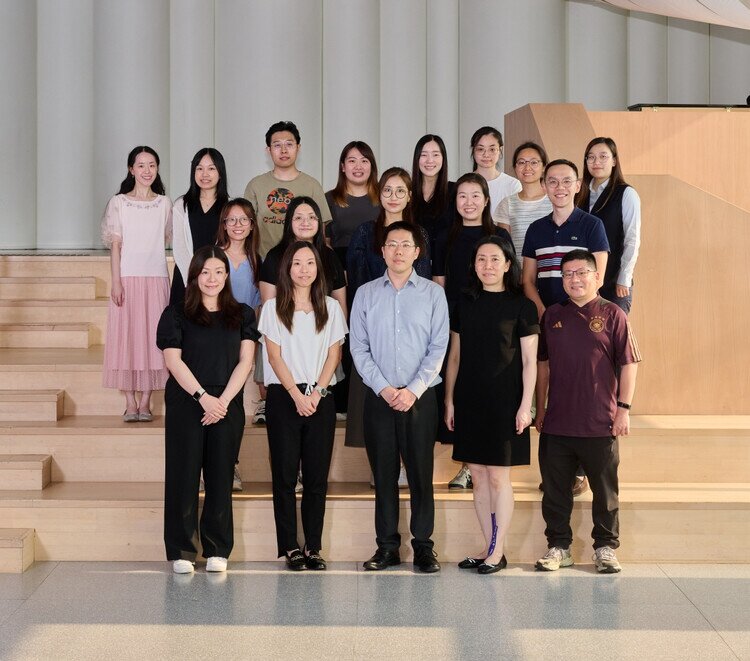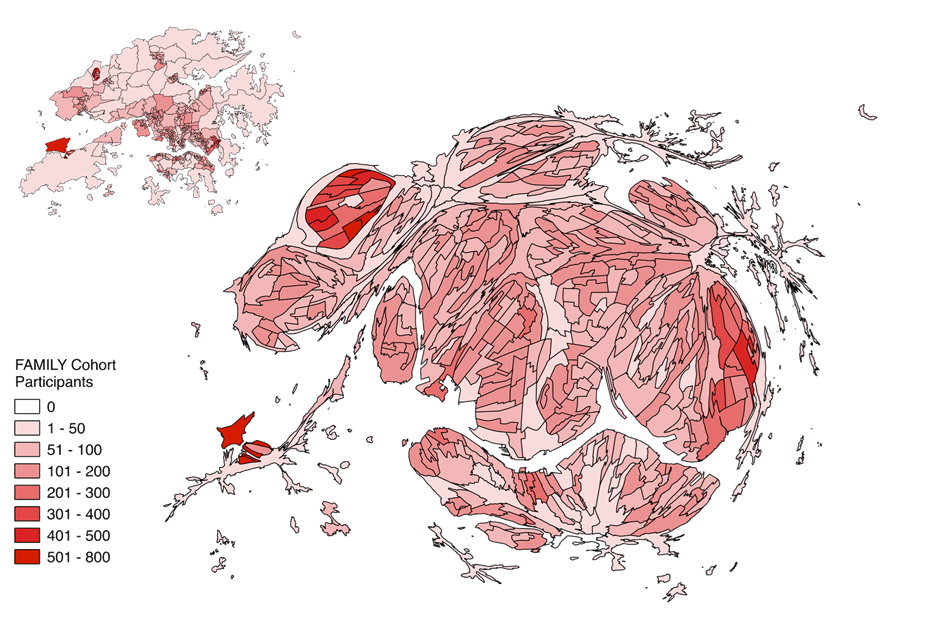The FAMILY Cohort: Pioneering Research for Societal Wellbeing and Reform
For over a decade, the FAMILY Cohort currently led by Professor Michael Ni from HKU’s School of Public Health, LKS Faculty of Medicine has been at the forefront of documenting the transformation of physical, mental, and social well-being in Hong Kong.
This groundbreaking research endeavour has advanced our understanding of population health and played a pivotal role in shaping health services and influencing policies, thereby fostering societal change at the local, national, and international levels.

Professor Michael Ni
One of the FAMILY Cohort's most significant feats has been its instrumental role in guiding the establishment of District Health Centres across all 18 districts in Hong Kong. Additionally, the research conducted by the FAMILY Cohort has directly contributed to the legislation of tobacco control policies, a vital step in promoting public health and reducing the prevalence of smoking-related illnesses. The then Secretary for Food and Health emphasised the team’s work as “indispensable” in Hong Kong’s “tobacco endgame”, and provided “strong support” to successfully passing the Smoking (Public Health) (Amendment) Bill 2021 – a “major milestone in tobacco control history”.
By providing real-time monitoring of well-being during population shocks, such as the during major societal events and the COVID-19 pandemic, these research insights were translated into impact by informing policies, mobilising resources, and enhancing support and care.

SCMP interview
At the heart of the FAMILY Cohort's impact lies its comprehensive and rigorous health needs assessment, which has served as the cornerstone for addressing major health challenges. The research outcomes have informed priority setting, resource allocation, and intervention design strategies by illuminating the magnitude of needs and identifying vulnerable groups. This thorough approach has led to tangible societal benefits, ensuring that healthcare resources are directed where they are most needed and that interventions are tailored to effectively address the pressing health concerns of the population.
The remarkable scope and granularity of the longitudinal data collected by the FAMILY Cohort since 2008 have positioned it as the largest population-representative cohort in Hong Kong, offering unparalleled insights into the community's health and well-being. This wealth of information has been harnessed to address critical health issues. It has charted new pathways for protecting and promoting population health, propelling the FAMILY Cohort to the forefront of pioneering research with far-reaching implications.
From conducting the largest and longest prospective cohort study globally on collective actions and mental health to unravelling the determinants that could simultaneously improve physical, cognitive, and social well-being, the FAMILY Cohort's contributions have been nothing short of transformative. By shedding light on the factors that influence mental health during major population shocks and unveiling the critical link between successful tobacco control and increased longevity, the research findings have ignited global conversations and inspired actionable initiatives to foster better health outcomes and societal well-being, connecting us to the global health community.
By highlighting the impactful work of the FAMILY Cohort, it becomes evident that research is not confined to academic realms; it can catalyse meaningful change, and forge a healthier, more resilient society. The FAMILY Cohort have made 38 summary reports from the FAMILY Cohort data publicly available including a territory-wide data and district-specific data covering all 18 districts in Hong Kong. These reports were shared with district councils, government bureaus, NGOs, legislators, and policymakers. The FAMILY Cohort has also established an open-access Geographic Information System to visualise and analyse data from over 100 variables for 46,000 participants. The pioneering research efforts of the FAMILY Cohort stand as a testament to the profound impact that dedicated research endeavours can have in shaping better health outcomes and improving the overall quality of life for populations worldwide. Eminent researcher Professor Ichiro Kawachi from Harvard University summed it best “In a world of increasing unrest, findings of Prof Ni’s work have important translational implications for the entire globe”.



